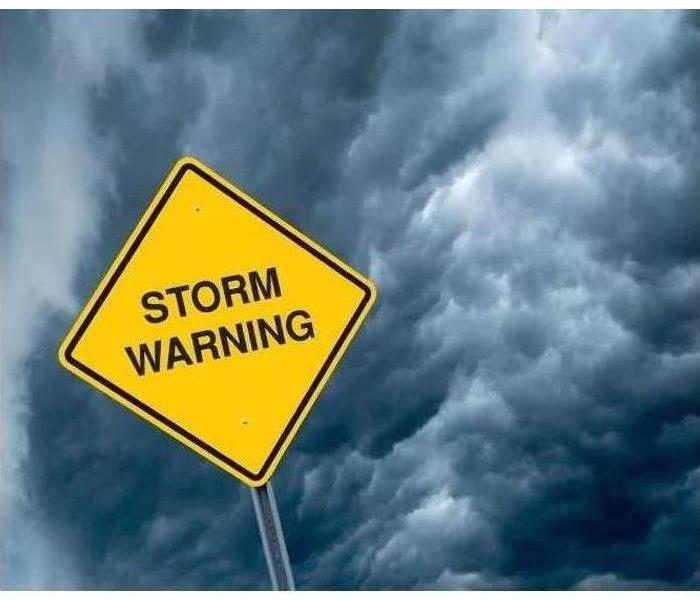How to Get Yourself Prepared During Storm Damage Times
9/28/2023 (Permalink)
Storms are unpredictable forces of nature that can wreak havoc on our homes and lives.
From heavy rain and powerful winds to lightning strikes and flooding, storm damage can be devastating. However, being prepared is the key to staying safe and minimizing the impact of storms.
In this article, we'll discuss essential steps to get yourself prepared during storm damage times.
1. Stay Informed: The first step in storm preparedness is staying informed about weather forecasts. Keep an eye on weather updates from reliable sources. Download weather apps or use weather websites to receive alerts and updates in real-time.
2. Create an Emergency Kit: Assemble an emergency kit that includes essential items like non-perishable food, water, flashlights, batteries, a first-aid kit, blankets, a battery-powered radio, and important documents. Make sure the kit is easily accessible in case of power outages.
3. Develop an Evacuation Plan: If you live in an area prone to severe storms or flooding, have an evacuation plan in place. Identify evacuation routes and shelters in your area. Ensure that every family member knows the plan and practice it periodically.
4. Secure Your Home: Prepare your home for storm damage by securing loose items in your yard, such as patio furniture and trash cans. Trim overhanging tree branches that could fall on your property during a storm. Consider installing storm shutters or reinforce windows to protect against flying debris.
5. Backup Power: If you live in an area prone to power outages, consider investing in a backup power source like a generator. Ensure it's properly maintained and ready to use when needed.
6. Flood Insurance: Check your insurance policies to ensure you have adequate coverage for storm-related damage. Standard homeowner's insurance may not cover all storm-related losses, especially flood damage. Consider purchasing a separate flood insurance policy if you live in a flood-prone area.
7. Communication Plan: Establish a communication plan with family and friends. Ensure everyone knows how to reach each other in case of separation during a storm. Designate an out-of-town contact person to serve as a central point of contact.
8. Stay Inside During the Storm: When a storm hits, stay indoors, and avoid unnecessary travel. High winds and heavy rain can make driving dangerous. Keep windows and doors closed to prevent water and debris from entering your home.
9. Post-Storm Inspection: After the storm has passed, conduct a thorough inspection of your property. Check for damage to your roof, siding, windows, and foundation. Take photos of any damage for insurance purposes.
10. Professional Help: If you discover significant storm damage to your home, it's essential to seek professional assistance. Contact a reputable restoration and repair service to assess and address the damage promptly.
Storm damage times can be challenging, but with proper preparation and a clear plan, you can safeguard your home and loved ones.
Also, don't forget we as SERVPRO are always here to help. Remember, your safety should always be your top priority. Stay safe, stay informed, and be ready to take action when needed.

 24/7 Emergency Service
24/7 Emergency Service
